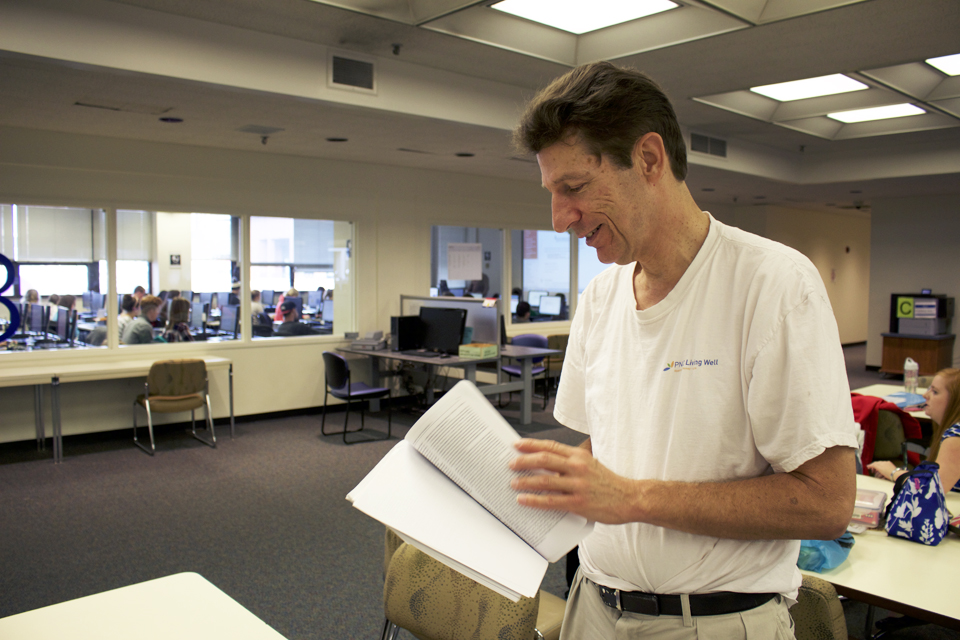03/14/2019
By Alexander Wolfe | Staff Columnist
The resolution introduced by Rep. Alexandria Ocasio-Cortez (D-NY) and Sen. Ed Markey (D-MA) has been the subject of national media curiosity for some time since its introduction on Feb. 7. Fancying my own ability to sift through complex economic and political language, I took the time to read the 15-page document to discover that it contains none of the convoluted language you might expect from a piece of landmark congressional legislation. It reads like a Democratic Socialist’s fever dream, finishing with a subclause asserting the federal government’s need to provide all people of the U.S. with high-quality healthcare, housing, education, economic security, clean water, air, food and access to nature without allocating a single dollar to fulfill this duty.
Take that in for one moment. Legislation representing a nationwide campaign promise on behalf of the Democratic party contains no funding. No reallocation, no new taxes, no discernable investment, nothing. Climate change is no joke; it’s responsible for an increasing number of deaths every year, and it requires strong action, not just strong words. The positive part of this document is its focus and attention devoted to the secondary impacts of climate change.
Low-income housing is more difficult to build when it must be prepared to stand in gale-force winds, freezing temperatures and torrential rains. The challenge of these immense correlations is the true behemoth which confronts the Green New Deal, and while effectively identifying the beast’s existence, there exists no method for its defeat.
The key challenges are the correlations between health and income inequality, geography and housing prices and culture and cost of living — are all correctly identified in some form by the Green New Deal.
Unfortunately, all these challenges harken back to the persistent problem of funding. The human race has possessed the technology to refurbish polluting buildings for some time, but for those ambitious few who would seek to begin the massive infrastructural updates according to the specifications of the Green New Deal, funding is limited, and rarely granted.
The resolution does address this, implicitly calling for a loosening of the flow of credit and capital toward those who would engage in clean infrastructure refurbishment, but this aspect of the momentous Green New Deal is poorly represented in the resolution’s language beneath a tidal wave of assertions of the necessity of an equitable execution of the Green New Deal.
However, the silver lining of this proclamation is that it may be knowingly playing into the hands of Washington’s endless population of policy experts and think tanks. Federally elected officials are traditionally great public speakers, adept at navigating local politics, and understand the desires of their constituents. One characteristic many do not possess is a dynamic knowledge of deeper policy debates. Some buck this trend, like freshman Representatives Abigail Spanberger (D-VA), Dan Crenshaw (R-TX) and Ayanna Pressley (D-MA), but most of our legislative representatives lack necessary knowledge to understand the nuances of some more murky areas of national policy — foreign policy, transportation policy and healthcare all come to mind.
Of course our representatives are meant to have gaps in their knowledge filled in by their staff, testifying experts and fellow Congresspeople, but frequently, and especially in the area of climate change, elected representatives display a woefully inadequate knowledge of science in general and the impact of climate change specifically.
The language of the Green New Deal resolution may be best imagined as a directive to D.C.’s think tanks, proclaiming guidelines for any institute’s proposal and outlining the goals any policy recommendation should seek to accomplish. Other countries are steadily executing their own green energy initiatives, and it’s become abundantly clear that the frontier of scientific and economic progress surrounds the quandary of climate change solutions.
The Democrats’ suggestion is not a bad start, though its language is likely to alienate both moderate Democrats and liberal Republicans in Congress, specifically language calling for the federal government to provide economic security to all Americans (newsflash: That’s impossible).
Hopefully the so-called intellectuals, myself included, will put their heads together to create a solution that must affect every policy and person of our country. The film 2012 was great, but I’m not inclined to live through it myself.



